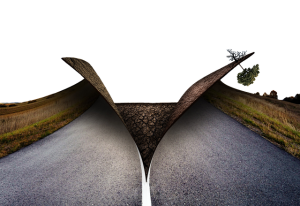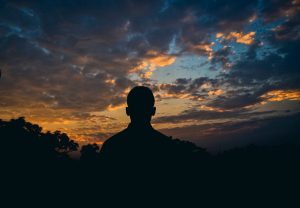
Why am I so drawn to ambiguity?
Endings with multiple interpretations can be perceived as unsatisfactory. After all, we all want to walk away from a book, a movie or a television show with the feeling of having completed a journey and reached a destination. What could be more annoying than to stop at a fork in the road? Or never really find out what happened, or worse still, have to sift through the many choices the end presented us with, expecting us to arrive at our own conclusions?! No tidy little bows at the end, no ‘happily ever after’? Why would the writer/director/producer of the content do that?
For someone who gravitates towards such inconclusiveness, here’s why I think endings such as these are far more effective in the long run.
Think back to ‘Gone with the Wind’. After many years of being in love with Scarlett O’Hara, Rhett Butler decides to leave her at the very same instance that she discovers that she truly loves him. He walks away, leaving her heartbroken. But we have been witness to her stubbornness, her wilfulness and her tenacity for an entire book. When she vows to win him back, secretly we are rooting for her. There is no definite ‘happily ever after’ here. She may win him back, she may not, but that depends on the reader’s estimation of her character. That is not an ending you are likely to forget in a hurry.
Haruki Murakami, the famous Japanese author, has often employed the technique of an uncertain ending. His off-kilter characters regularly find themselves at crossroads and many a time, you have no idea which way they’ll head. Which makes the entire experience doubly surreal and unforgettable.
Christopher Nolan’s movies often end in a riddle. Take the example of ‘Inception’. Dreams layer upon dreams until it becomes impossible for the protagonist to distinguish between reality and a dreamscape. At the very end, the viewer is left wondering whether they have witnessed his return to the real world or is the entire segment just another fabrication of his mind?
I can see how incredibly frustrating this can be to someone who just wants a linear narrative, a satisfactory end and entertainment for the sake of entertainment.
But for those who want a little bit more, the lure of an ambiguous finish is almost impossible, to sum up. Think of the many permutations incertitude offers us. The multiple paths that may be explored, the multiple ways that the story reached this conclusion. Mind-boggling? Yes! But that is the whole point, you see.
An Indian film by the name of ‘Andhadhun’ was a big commercial and critical success in 2018. The premise was a simple one – a young musician pretending to be blind unwittingly witnesses a murder. His life goes into free fall from that moment onwards, even as he scrambles to keep it all together. The resolution when it arrives is unexpected and once again, open to many and varied interpretations. Is he really blind? Did he succumb to the evil that had dogged him? Accident or murder? Uhhh, no clear cut answers for you, my friend. Read into it what you will.
And that is exactly my jam!
For those who have read my books and stories, they are often confounded by an ending they did not foresee; that little unanticipated twist in the tale. It’s a tactic I enjoy because I want the reader to think, to wonder and then to arrive at whichever conclusion works best for them. This isn’t the lazy writer’s guide to uncertain endings. It is a very deliberate modus operandi to shock and excite, but also leave a lingering vacillation as to whether their interpretation was correct or not.
Tell me that you don’t end up debating those ambiguous, open-ended denouements far more than any others! Yes? Thought so. Mission accomplished.






